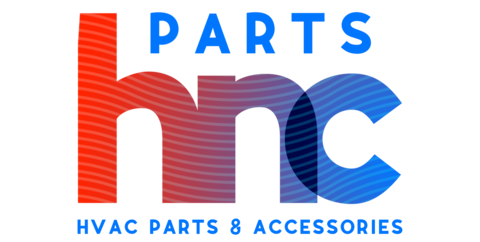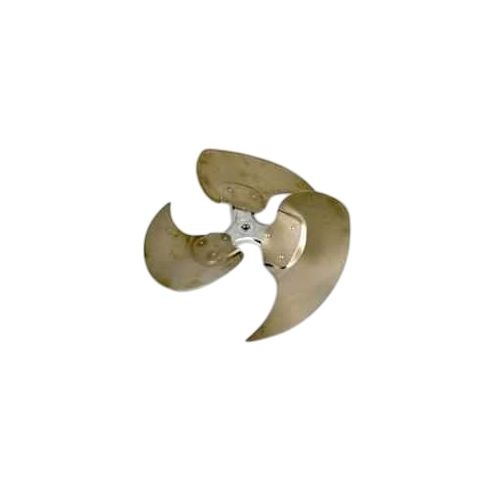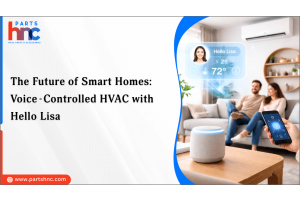Seamless Integration: The Future of Smart HVAC Powered by IoT
Smart technology is slowly becoming a part of different industries, and the HVAC (Heating, Ventilation, and Air Conditioning) sector is also affected by the development of smart technology. The Internet of Things or IoT has brought change to the way heating and cooling systems are controlled with smart HVAC systems. Combining IoT with HVAC allows the user to enjoy enhanced energy conservation, accessibility, preventive operations, and comfort levels simultaneously. This article explains how the IoT is increasingly defining the future of HVAC, which specific brands have embraced this emerging technology, and what unique HVAC systems are currently out there.
Table of Contents
The Evolution of Smart HVAC Systems
Conventional HVAC systems do not have real-time information or analysis of the systems’ performance. They are useful in heating, cooling and ventilating the rooms but cannot change the settings according to the occupancy or weather conditions. In IoT, HVAC systems are not only getting smart but are also capable of gathering data from IoT connected sensors and devices. This also makes the system to be controlled, automated and monitored hence making it work as it is supposed to.
Smart HVAC systems can:
- Program the thermostat to change temperature depending on the number of people in the house.
- Identify problems which might require maintenance before they need repair services.
- Submit energy consumption reports and recommend ways of improving efficiency.
- It should be possible to remotely monitor and control the system through smart phones or other smart devices.
These are developments that are making IoT driven HVAC systems the future of home and commercial comfort management.
For additional insights on ensuring safe HVAC operations, check out our article on Best Practices in HVAC Safety Standards.
Key Benefits of IoT-Enabled HVAC Systems
Here are the key benefits of IoT-enabled HVAC systems:
1. Enhanced Energy Efficiency
The most compelling benefit of smart HVAC systems powered by IoT is increased usage of energy. Standard systems employ time-based controllers or programmable ones, which cannot factor in factors like the occupancy level or the prevailing outdoor conditions. IoT enables the HVAC systems to adapt depending on the data received and this means that energy is not used when it is not necessary.
For instance, smart thermostats linked to IoT sensors can learn when a room is empty and automatically lowers the temperature to save energy. This results in large energy savings particularly in large commercial buildings due to their large energy consumption.
2. Predictive Maintenance
Smart HVAC systems can detect problems and alert the owner before the problem becomes severe. Some of the parameters that are kept under check by the sensors within the system include airflow, temperature and pressure levels. If these metrics are outside the normal range, then the system will notify maintenance teams, so that they can fix it before it results in a breakdown.
This predictive maintenance approach does not only reduce downtime but also the service life of HVAC equipment. Manufacturers are now using IoT to provide brands and consumers with maintenance notifications to prevent any failure.
For more guidance on maintaining your HVAC system, check out our article on Essential HVAC Maintenance Tips for Homeowners.
3. Remote Control and Automation
Smart HVAC systems give users the opportunity to control their systems remotely with the help of a smartphone or any other smart device. This level of accessibility is especially useful for homeowners who may wish to change settings while they are away or for facility managers who might have to oversee numerous systems in a commercial building.
Automation is also critical in IoT-enabled HVAC systems, as the next point will show. Some features include programming, setting up energy saving modes, and receiving notifications based on certain conditions such as temperature or filter change.
4. Improved Indoor Air Quality
Air quality inside buildings should be well maintained, and this is particularly important for buildings such as hospitals, schools and offices. Smart HVAC systems can therefore use IoT sensors to check for CO2 levels, humidity and particulate matter in the air. These systems can then increase or decrease the rates of ventilation or even the quality of air purification to fit the standard. This is vital to achieving good indoor conditions and comfort of occupants in the building.
Brands Leading the IoT HVAC Revolution
Several industry-leading HVAC brands have embraced IoT technology, creating cutting-edge solutions for residential and commercial customers. These brands have integrated IoT into their HVAC systems, offering features that enhance efficiency, comfort, and convenience.
1. Honeywell
Honeywell is one of the leading companies that has implemented IoT in smart HVAC systems that provide energy efficiency, remote control, and predictive maintenance. Honeywell’s IoT connected thermostats are the Honeywell Home T9 and T10 Pro that use sensors to track indoor temperature and occupancy to optimize settings for comfort and efficiency.
Their IoT based smart commercial HVAC systems also have a feature of predictive maintenance, which assists the facility managers to identify potential problems and avoid them from becoming big issues. The Honeywell Forge for Buildings leverages IoT in controlling building systems such as HVAC with the intention of improving efficiency and energy consumption.
2. Trane
Trane HVAC systems are IoT integrated for optimal control and automation of the system. An example on this front is the firm’s Trane ComfortLink™ II Control, which integrates HVAC applications with the Trane Nexia smart home solution. This enables the users to manage their HVAC systems and programs from a distance, set up the times and even notify them of the systems’ statuses.
The IoT ideas put forward by Trane do not stop at smart residences with heating and air conditioning systems. Manufacturing building automation products including the Tracer™ SC+ System Controller, the overarching suite of products includes IoT compatibility for real-time data collection, as well advanced predictive maintenance and energy management.
3. Daikin
Daikin, another HVAC manufacturing company has also embraced IoT to develop enhanced systems and solutions. Daikin One+ smart thermostat is an example of the intelligent control system that Daikin offers to its consumers; it offers the users connectivity options whereby they can control their HVAC systems through mobile applications or even voice commands.
Furthermore, Daikin’s commercial HVAC systems use IoT to provide customers with such benefits as remote control and energy control. Daikin Intelligent Equipment® is a cloud-based system that gathers information about HVAC units and offers its users recommendations on how to maintain the equipment properly and save energy.
4. Carrier
Carrier is another brand that is at the forefront of the IoT integration in HVAC systems. Carrier’s Infinity® System Control interfaces with the brand’s smart HVAC systems with touch controls and buttons to control heat, cool, humidify, and ventilate. By means of IoT the system delivers the data on performance and energy consumption and allows to change the parameters of operation accordingly.
Carrier’s commercial HVAC solutions including the i-Vu® building automation system apply IoT to provide a high level of control of building systems including HVAC. This system is the ability to monitor the system in real-time, access the system remotely, and the ability to predict when a system will fail, thus making it possible to control the efficiency of the large facilities.
Examples of IoT-Enabled HVAC Systems
Many HVAC systems have successfully incorporate IoT devices as a means of improving its functions, energy saving, and user friendliness. Examples of some of the world’s most advanced IoT solutions for HVAC systems include the following:
1. Honeywell Home T10 Pro Smart Thermostat
The Honeywell’s T10 Pro smart thermostat is embedded with IoT sensors that captures features such as temperature, humidity indoors, and occupancy. It is operated through the use of sophisticated technology, which optimizes the settings in accordance with prevailing conditions of the environment besides maintaining comforts by individually controlling the supply of warmth or coolness while saving costs on energy. An additional feature of remote control and geofencing makes it possible for the users to control the operation of their HVAC systems despite their absence in the premises.
2. Trane ComfortLink™ II Control
Trane ComfortLink™ II control is a smart thermostat that is compatible with Trane’s heating and cooling systems. It interfaces with a Nexia smart home system so that a consumer can operate systems from a smartphone or smart device. The system also has performance data feedback on real-time usage and energy usage reports making it easy for the users to adjust the HVAC settings on the behalf of the system.
3. Daikin One+ Smart Thermostat
The Daikin One+ smart thermostat is ideal for use both in residential and commercial premises. The thermostat communicates with the Daikin systems and shows the users current value of the indoor temperature, humidity, and air quality. For the Daikin Comfort Control app, they can command their systems, for scheduling and for notification of their systems’ performance.
4. Carrier Infinity® System Control
Carrier’s Infinity® System Control also supports IoT features where consumers can track or even program their Heating and Cooling systems through a smartphone or a smart device. The system sends the data in real time as the energy being used, the quality of the air inside the building, and the performance of the system itself. Geofencing is another feature that enhances automation so that specific temperature preferences can be set depending on users’ locations.
Looking to upgrade or repair your smart HVAC system? PartsHnC is your one-stop shop for premium HVAC parts online! We offer top brands like Honeywell, Trane, and Carrier, with essential components such as smart thermostats, compressors, sensors, and air filters to ensure your system runs smoothly and efficiently. Shop now for reliable solutions that keep your HVAC system at peak performance!
The Future of Smart HVAC Systems Powered by IoT
The future of HVAC is undeniably linked to the continued evolution of IoT technology. As smart devices become more interconnected and capable, HVAC systems will become even more intelligent, providing users with greater control, comfort, and efficiency. In the coming years, we can expect:
- Deeper Integration with Smart Home Ecosystems: HVAC systems will work hand in hand with the other smart home gadgets like the lighting, security, and appliances to create smart environments.
- AI-Powered HVAC Systems: AI will improve the learning capabilities of HVAC systems based on users’ behaviors, environment, and history. This will result in even better control over the energy used and also the comfort level required in different areas.
- Sustainability Focus: With energy conservation being central to most countries’ policies, IoT-based HVAC systems will be instrumental in cutting down on energy consumption and the carbon footprint of homes and business premises.
The use of IoT in HVAC systems is revolutionizing the way people control the condition of the indoor environment. From better energy utilization to predictive maintenance and better air quality, IoT-enabled HVAC systems have a lot to provide for homeowners as well as businesses. Today, such giants as Honeywell, Trane, Daikin, Carrier, and others are setting the trends of the industry offering customers comfort, convenience, and sustainability. The prospects of the HVAC industry are only growing and the future is smarter, more efficient, and interconnected.
 Loyalty Program
Loyalty Program














